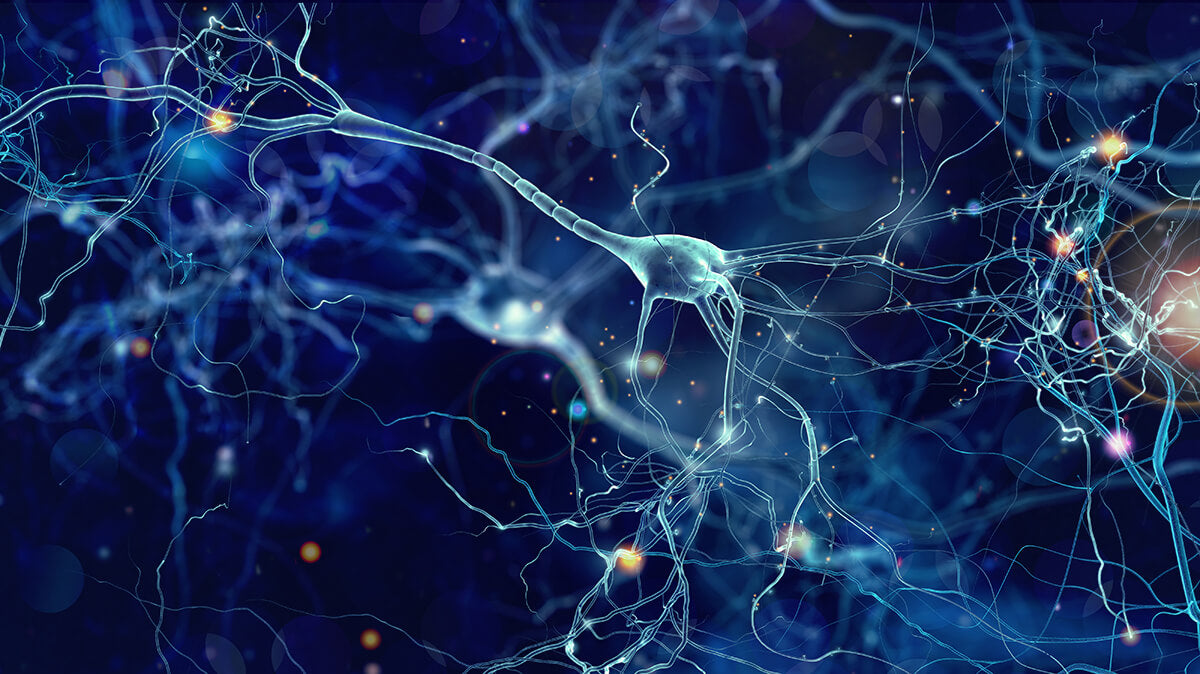
What does carnitine do?
Carnitine transports fatty acids into the mitochrondria where they are burned for energy. As clinician Robert Crayhon, M.S. writes in The Carnitine Miracle, “If you give your cells the ability to make optimal levels of energy, they can use it to do whatever they want: build and renew cell membranes, create and maintain cell structures, and replicate and protect cell information. In short, they use it to make themselves work better and last longer.”1What is acetyl l-carnitine?
Acetyl L-carnitine is carnitine bound to an acetyl group. This binding is what makes it the only compound shown to raise carnitine levels in the brain. It is a powerful nutrient used to support optimal nervous system function, editing in messages being sent at ideal speed and integrity from the brain to the rest of the body.Acetyl L-carnitine supports brain cell energy production
Higher levels of brain carnitine means increased capacity to produce energy in the brain, leading to more ability for brain cells to repair themselves. As Crayhon writes, “When a cell lacks energy, it dies. This is particularly bad when it comes to brain cells, because when they die, they are nearly impossible to replace.”1 As you may know, the brain runs primarily on glucose, the simplest form of sugar and the end product of dietary carbohydrate breakdown. Between meals or when consumption of carbohydrates is low, brain cells need alternative energy sources: lipids and ketones. Acetyl l-carnitine can help the brain adapt to using these alternative forms of energy, which is why keto sites often recommend supplementation.1Acetyl L-carnitine supports the brain’s communication network
Receptors on brain cells enable neurons to communicate, sending signals through your nervous system that tell your body how to move, amongst other vital pieces of information. Acetyl L-Carnitine protects against the loss of receptors on brain cells that usually occurs with age.1
Acetyl L-Carnitine also helps to produce acetylcholine, which is an important chemical messenger in the brain.1 Nerve growth factor (NGF) helps to preserve neurons.
Acetyl L-Carnitine not only increases levels of NGF, but helps the neurons in the hippocampus respond to NGF better.1 Acetyl L-Carnitine helps to maintain the myelin sheath. This fatty layer surrounds the nerves in the central and peripheral nervous systems and enables the speedy message transmission. Without a functioning myelin sheath, communication from the brain to the body suffers.1 Acetyl l-carnitine protects genetic information. DNA and RNA survival keeps the mitochondria running to keep supplying cells with energy. Research shows that acetyl l-carnitine — in both the brain and the heart — may protect DNA and RNA.1
How to consume acetyl l-carnitine
Acetyl L-carnitine forms when l-carnitine is acylated, when l-carnitine adds an acyl group. Acylation is a natural process in the body, so you need to ensure that you have enough carnitine to make this happen. Carnitine in diet Carnitine is a derivative of amino acids lysine and methionine. If its name evokes thoughts of carnivores, that’s because scientists originally isolated the compound from meat. While meat is a source of dietary carnitine, your body also makes its own from lysine and methionine.
About 75% of total body carnitine originates from food sources of either carnitine or from food sources of amino acids lysine and methionine. Dietary intake correlates with circulating carnitine levels, as demonstrated in studies comparing people following vegan and primarily grain-based diets to those who consume animal products: those who did not eat animal products had lower circulating plasma carnitine.
Other research showed that people following a high-fat, low-carbohydrate diet had higher plasma carnitine than those following a low-fat, high-carbohydrate diet.2 Since carnitine is synthesized from methionine and lysine, dietary intake of those amino acids can also predict carnitine status. As those amino acids are most prevalent in poultry, red meat, eggs, fish, and dairy, it’s no surprise that researchers found lower levels of plasma carnitine in vegans who also consumed less lysine and methionine.2
Synthesizing carnitine also requires Vitamin C, niacin (Vitamin B3), and pyridoxine (Vitamin B6). Nutritional deficiencies may compromise carnitine levels. Low iron levels also correlate with low carnitine.2
Acetyl L-carnitine supplementation An easy way to ensure you’re getting enough acetyl l-carnitine specifically is to supplement. Crayhon recommends supplementation to every adult, ideally beginning in the early twenties and definitely around age 40. Acetyl L-carnitine is water-soluble, thus your body can’t store any excess. So, ensuring that you absorb as much as possible from your supplement is vital to getting your money’s worth.
Liposomal acetyl l-carnitine provides better absorption by wrapping the acetyl l-carnitine in fatty spheres that transport the nutrient into the bloodstream and the cells instead of relying on your body’s unreliable absorption pathways. The fatty spheres also contain the critical brain nutrient phosphatidylcholine, which is required to make neurotransmitters.
References
1 Crayhon, Robert, M.S. The Carnitine Miracle: The Supernutrient Program that Promotes High Energy, Fat Burning, Heart Health, Brain Wellness, and Longevity. M. Evans and Company, New York: 1998.
2 Steiber, Alison, Kerner, Janos, Hoppel, Charles L. Carnitine: a nutritional, biosynthetic and functional perspective. Molecular Aspects of Medicine 25 (2004), 455–473.

